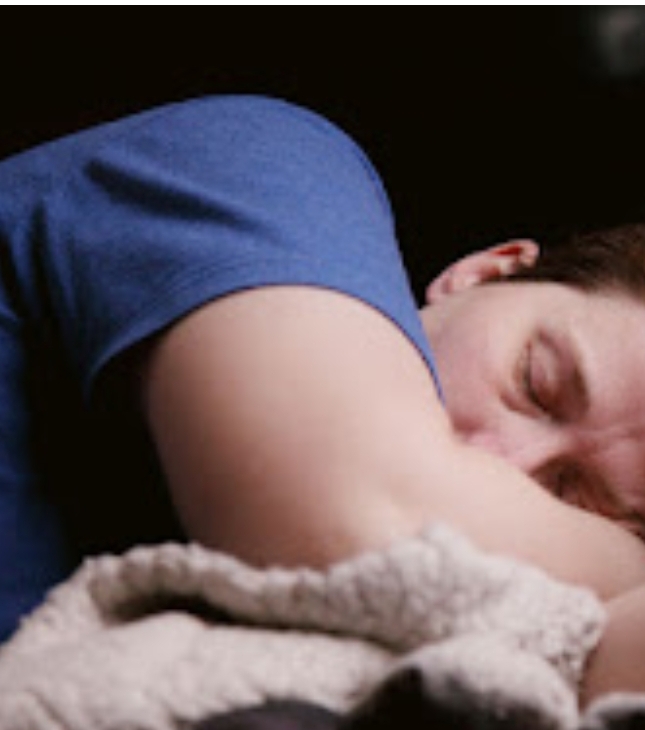Health
Effects of Low Testosterone in Men and How to Fix It

Last Updated on October 31, 2025 by Joshua Isibor
Low testosterone, also known as hypogonadism, is a condition that affects men of all ages. Testosterone is a hormone that plays a crucial role in the development of male sexual characteristics, as well as in maintaining muscle mass, red blood cell production, and bone density. When testosterone levels drop below normal, it can cause many symptoms, including fatigue, low sex drive, erectile dysfunction, depression, and decreased muscle mass.
Causes of Low Testosterone
Several factors can cause low testosterone levels in men, including:
Aging: As men gradually age, there is a decline in their natural testosterone levels. In fact, testosterone production peaks during adolescence and early adulthood and then gradually decreases by about 1% per year after age 30.
Medical conditions: Certain medical conditions can also cause low testosterone levels, including diabetes, obesity, pituitary gland disorders, and thyroid problems. Chronic illnesses like HIV/AIDS, liver or kidney disease, and chronic obstructive pulmonary disease (COPD) can also lead to low testosterone levels.
Medications: Certain medications, such as opioids, glucocorticoids, and chemotherapy drugs, can lower testosterone levels.
Testicular injury or disease: Injury or disease of the testicles can cause low testosterone levels. For example, testicular cancer, radiation therapy, or chemotherapy can damage the testicles and lead to low testosterone levels.
Lifestyle factors: Lifestyle factors such as stress, lack of sleep, poor nutrition, and excessive alcohol consumption can also contribute to low testosterone levels.
In addition to these factors, genetics can also play a role in testosterone levels. For example, some men may have a genetic predisposition to low testosterone levels.
What are the Effects of Low Testosterone in Men
Low testosterone in men, also known as hypogonadism, can have a wide range of effects on the body. Testosterone is a hormone that plays a crucial role in the development of male sexual characteristics, as well as in maintaining muscle mass, bone density, and red blood cell production. When testosterone levels drop below normal, it can cause a variety of symptoms, including:
Reduced sex drive: Testosterone is responsible for stimulating sexual desire in men. When levels of this hormone drop, men may experience a reduced sex drive or even a complete loss of interest in sex.
Erectile dysfunction: Testosterone also plays a role in maintaining healthy erections. When hormone levels are low, men may experience difficulty achieving or maintaining an erection.
Fatigue: Testosterone helps to maintain energy levels in men. Men may experience fatigue or a lack of energy when levels are low.
Loss of muscle mass: Testosterone is essential for building and further maintaining the muscle mass. When levels of the hormone drop, men might face a loss of muscle mass and strength.
Increased body fat: Testosterone also helps to regulate fat metabolism in the body. Men may experience increased body fat when hormone levels are low, particularly around the abdomen.
Decreased bone density: Testosterone is important for maintaining strong bones. When levels of the hormone drop, men may experience a decrease in bone density, which can lead to an increased risk of fractures.
Mood changes: Testosterone plays a role in regulating mood in men. When hormone levels are low, men may experience mood changes such as depression, irritability, or difficulty concentrating.
Decreased cognitive function: Testosterone is also important for maintaining cognitive function in men. When levels of the hormone drop, men may experience a decline in cognitive function, including memory, attention, and spatial abilities.
Decreased sperm count: Testosterone is important for the production of sperm. When hormone levels are low, men may experience a decrease in sperm count, which can lead to infertility.
Low testosterone can also increase the risk of developing other health conditions like cardiovascular disease and diabetes.
Ways to Fix the Effects on Low Testosterone in Men
There are several ways to treat the effects of low testosterone in men. The most common treatment is testosterone replacement therapy (TRT), which involves supplementing the body with testosterone to restore levels. Here are some ways to fix the effects of low testosterone in men:
Testosterone replacement therapy (TRT)
TRT involves supplementing the body with testosterone to bring levels back to normal. Several different types of testosterone replacement therapy (TRT) are available to treat low testosterone in men. Every kind of TRT has its own advantages and disadvantages. Your healthcare provider can help determine which type of TRT is best for you based on your individual needs and preferences. Here are some common types of TRT:
Testosterone injections: Testosterone injections are given into the muscle every 2-4 weeks. This type of TRT can quickly increase testosterone levels, but levels can also fluctuate between injections.
Testosterone patches: Testosterone patches are applied to the skin daily and can provide a steady release of testosterone throughout the day. However, some men may experience skin irritation or rash at the site of the patch.
Testosterone gels: Testosterone gels are applied to the skin daily and can steadily release testosterone throughout the day. However, it is important to avoid showering or swimming for a few hours after application to allow the gel to be fully absorbed. Additionally, the gel can transfer to others through skin-to-skin contact, so washing hands and covering the application site is important.
Testosterone pellets: Testosterone pellets are tiny, rice-sized pellets which are inserted under the skin every 3-6 months. This type of TRT can provide a steady release of testosterone over a longer period of time, but it requires a minor surgical procedure to insert and remove the pellets.
TRT can help to fix the effects of low testosterone in men by increasing testosterone levels and improving symptoms such as low sex drive, fatigue, and mood changes. However, you should remember TRT can also have side effects, such as breast enlargement, acne, and a heightened risk of blood clots. Therefore, working with a healthcare provider specializing in TRT is important to ensure your treatment is safe and effective.
Lifestyle Modifications
Making lifestyle changes can also help to increase testosterone levels. Several lifestyle modifications can help treat low testosterone’s effects in men. While these changes may not increase testosterone levels as much as medical treatments, they can help improve symptoms and overall health. You can also look into having a testicle massage. The testicles are an erogenous zone and having a testicle massage may boost your testosterone, so click here to learn more. Here are some lifestyle modifications that may be helpful:
Exercise: Regular exercise can help to increase testosterone levels, as well as improve muscle mass, bone density, and mood. Resistance training, such as weightlifting, may be particularly effective for increasing testosterone levels.
Healthy diet: Eating a balanced diet that is rich in fruits, vegetables, lean protein, and healthy fats can help to support testosterone production and overall health. Avoiding processed foods, sugar, and excessive alcohol consumption may also be helpful.
Adequate sleep: It is important to get enough sleep for overall health and can help support testosterone production. Try to get 7-9 hours of sleep every night.
Stress reduction: High levels of stress can actively cause testosterone levels to drop, so it might be helpful to find ways to reduce stress, such as meditation, yoga, or deep breathing exercises.
Weight loss: Obesity is associated with lower testosterone levels, so losing weight through a healthy diet and exercise may help to improve testosterone levels and overall health.
It is important to note that lifestyle modifications may not be enough to treat low testosterone independently, particularly in severe cases. However, they can be a helpful addition to medical treatments or may be recommended for men with mild to moderate symptoms of low testosterone. Always talk to your healthcare provider before making any significant changes to your diet, exercise routine, or lifestyle.
Treatment of Underlying Medical Conditions
Treating underlying medical conditions that can cause low testosterone, such as diabetes, obesity, or thyroid problems, can also help to improve testosterone levels.
Medication Adjustments
If low testosterone is caused by medication use, adjusting or discontinuing the medication may be necessary to improve testosterone levels.
Supplements
Some natural supplements, such as DHEA, zinc, and ashwagandha, may help to increase testosterone levels. However, it is important to talk to your healthcare provider before taking any supplements to ensure they are safe and effective for you.
Final Words
If you are experiencing symptoms of low testosterone, it is important to see a healthcare provider for evaluation and diagnosis. They can help determine the best treatment options based on your needs and medical history.
Also, Read The Benefits of Gender-Specific Addiction Treatment
Originally posted 2023-04-26 11:48:01.

-

 Text Messages2 years ago
Text Messages2 years agoBEST LOVE CONFESSION MESSAGES FOR HER OR HIM
-

 Health4 months ago
Health4 months ago5 Unknown Ways To Maintain Skin Health
-

 Sex Education2 months ago
Sex Education2 months ago10 Simple Hack to Make a Girl Send Her Nudes
-

 Text Messages2 years ago
Text Messages2 years agoHappy Birthday Cousin, wishes and messages
-

 Text Messages2 years ago
Text Messages2 years agoHeart Touching RIP Uncle Quotes
-

 Uncategorized4 months ago
Uncategorized4 months agoHOW TO KISS A BOY FOR THE FIRST TIME
-

 Text Messages2 years ago
Text Messages2 years agoFreaky and Dirty Paragraphs For Him Copy And Paste Yahoo
-

 Text Messages2 years ago
Text Messages2 years agoBest Good Luck Wishes Before and After Surgery, for Family and Friends













